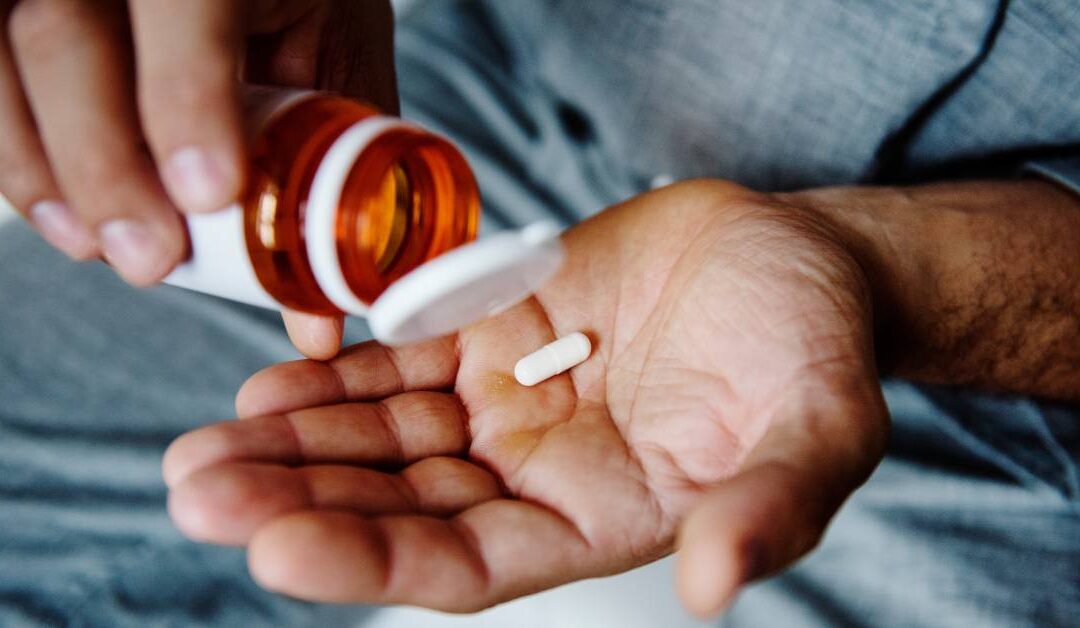If you are struggling with mental health issues, you may have considered taking medication as a possible solution. However, you might also wonder whether medication is truly necessary, if it’s the best option for you, or if it will actually improve your well-being. A big part of approaching this decision is knowing what the benefits of taking medication for mental health are. With the right understanding of your situations and the options available to you, you can choose the option that’s right for you.
Better Management of Symptoms
One of the most significant benefits of mental health medication is its ability to effectively manage symptoms that can otherwise feel overwhelming or debilitating. Whether you’re dealing with intense anxiety attacks, persistent low moods from depression, or extreme highs and lows caused by bipolar disorder, medication can help bring stability to your emotions.
For people with conditions such as schizophrenia or PTSD, medication can also reduce the intensity of intrusive thoughts, hallucinations, or flashbacks that disrupt daily life. Medication helps create a foundation for you and your mental health, making it easier for you to heal.
Improved Quality of Life
By reducing the severity and frequency of distressing symptoms, mental health medication can significantly enhance your overall quality of life. When you’re not constantly battling overwhelming feelings or intrusive thoughts, it becomes easier to focus on meaningful aspects of life, such as:
- Building or repairing personal relationships
- Performing well at work
- Rediscovering hobbies and passions.
Medication helps minimize the emotional and mental struggles that can consume your energy, allowing you to find joy, purpose, and a sense of normalcy in your daily routine. Feeling more in control of your mental health empowers you to reconnect with the people and activities you care about most.
Increased Therapy Effectiveness
Therapy and medication often work best when used together, creating a complementary approach to mental health care. Medication can help alleviate some of the most severe symptoms, creating a more stable mental and emotional state that allows you to engage more fully in therapy. For example, if you struggle with debilitating anxiety, medication can calm your mind enough to participate actively in cognitive-behavioral exercises or mindfulness techniques.
Similarly, for people dealing with depression, medication can lift the emotional fog, making it easier to reflect on thoughts and behaviors during therapy. Together, these tools form a strong foundation for long-term recovery and growth.
Reduced Risk of Relapse
Mental health conditions often come with the risk of symptoms reoccurring or worsening over time, especially if left alone for too long. Consistently following a medication regimen can help prevent the sudden mood changes or behavioral shifts that may trigger a relapse. This stability is particularly important for people with conditions like bipolar disorder, where extreme and unpredictable mood swings can disrupt every aspect of life.
Medication helps maintain a baseline of stability, reducing the risk of setbacks and allowing you to build a steady path toward recovery. For many people, this consistency is a key part of maintaining progress over the long term.
Customized Treatment
One of the most empowering aspects of mental health medication is that treatments can be customized to meet your unique needs. With the guidance of a medical professional, you can explore various options to find the medication or combination of medications that work best for your specific condition and brain chemistry.
This process may involve trying different types of medication, adjusting dosages, doing genetic testing, or refining your treatment over time, but ultimately, the goal is to develop a plan that suits you perfectly. The personalized nature of this approach ensures that you receive care that aligns with your individual experience and health goals.
Increased Functioning
Mental health disorders can significantly interfere with daily life, making the simple tasks of getting out of bed, focusing at work, or interacting with others feel overwhelming. By reducing the severity of symptoms such as anxiety, depression, or intrusive thoughts, medication can help you regain the ability to function in everyday activities.
Over time, you may find yourself better able to concentrate, manage stress, and accomplish goals that once seemed out of reach. This improved functioning can help relationships, work performance, and overall quality of life, giving you the tools to lead the more balanced and productive life you’ve always wanted.
Prevention of Severe Episodes
For people with severe mental illnesses, such as schizophrenia, bipolar disorder, or recurrent major depression, medication can be lifesaving. These conditions often involve intense episodes of psychosis, mania, or depression that can pose risks of harm to oneself or others. Medication works to stabilize moods, prevent extreme episodes, and reduce the likelihood of crisis situations.
Medication can also help mitigate these episodes, improving someone’s safety and lowering their need for hospitalization, making it much easier to be independent and continue on with their normal lives. Stability here helps make a profound difference in people’s long-term recovery and safety.
Support in Long-Term Management
While mental health medications are not a cure, they are often an essential component of long-term symptom management. For many, medication provides the stability needed to navigate life’s challenges and maintain progress in therapy, work, and relationships. Consistently taking medication as prescribed by your doctor helps you get your symptoms under control, greatly reducing the risk of relapse.
Over time, long-term management with medication can empower people to focus on personal growth, build meaningful routines, and achieve goals that once felt unattainable. It’s a vital tool in creating a foundation for lasting stability and success, making it a great option for people who are struggling with their mental health.
Relief From Physical Symptoms
Mental health issues often manifest physically, with symptoms such as headaches, stomachaches, muscle tension, fatigue, or even unexplained pain. These physical effects can add to the distress of mental health challenges, making it harder to find relief. Medication can play a critical role in reducing these physical symptoms, helping your body feel more at ease.
For example, treating anxiety might alleviate chest tightness or muscle tension, while addressing depression could reduce fatigue and improve energy levels. This physical relief allows you to feel more comfortable and better equipped to focus on other aspects of your recovery.
Taking medication for mental health has many benefits, making it a strong and transformative step toward better well-being. Additionally, the decision to take medication should be approached with an open mind and the support of a medical professional. Remember, everyone’s journey is unique, and there’s no “right” way to address mental health challenges. Here at The Neuropsychiatric Clinic, we can help with our GeneSight testing for medication. Finding the right medication for your unique mental health is important, and The Neuropsychiatric Clinic is here to help!


